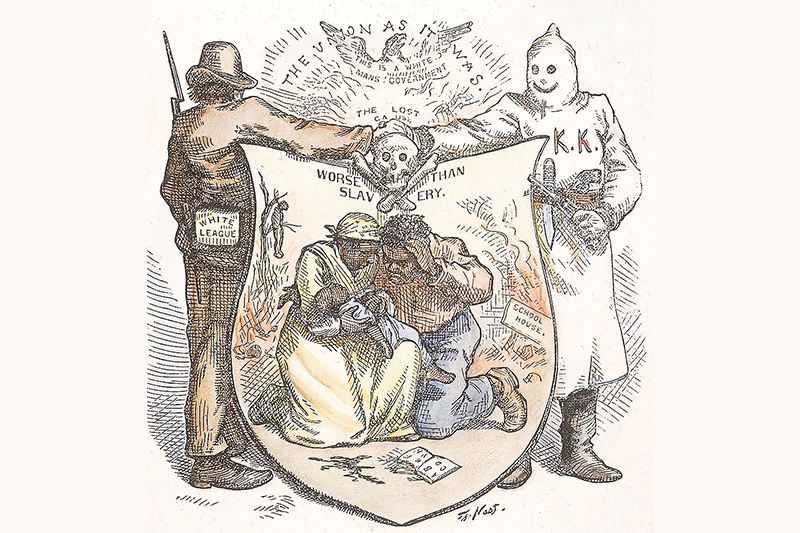
Good Morning POU!
Ok, so the title of this week’s posts is not a pleasant one, but good morning nonetheless! Yes, we will take a look at laws, acts and movements designed to keep black people as subhuman and servants to saltines after the Emancipation Proclamation(hat tip to GovChris for this informative topic). Fox News and their coon help love to tell us that after that, everything was just dandy. NOT.
We start with the Compromise of 1877.

Immediately after the presidential election of 1876, it became clear that the outcome of the race hinged largely on disputed returns from Florida, Louisiana and South Carolina–the only three states in the South with Reconstruction-era Republican governments still in power. As a bipartisan congressional commission debated over the outcome early in 1877, allies of the Republican Party candidate Rutherford Hayes met in secret with moderate southern Democrats in order to negotiate acceptance of Hayes’ election.
The Democrats agreed not to block Hayes’ victory on the condition that Republicans withdraw all federal troops from the South, thus consolidating Democratic control over the region. As a result of the so-called Compromise of 1877 (or Compromise of 1876), Florida, Louisiana and South Carolina became Democratic once again, effectively marking the end of the Reconstruction era.
By the 1870s, support was waning for the racially egalitarian policies of Reconstruction, as many southern whites had resorted to intimidation and violence to keep blacks from voting and restore white supremacy in the region. Beginning in 1873, a series of Supreme Court decisions limited the scope of Reconstruction-era laws and federal support for the so-called Reconstruction Amendments, particularly the 14th and 15th, which gave African Americans the status of citizenship and the protection of the Constitution, including the all-important right to vote.

In addition, accusations of corruption within the administration of Ulysses S. Grant and an economic depression had heightened discontent with the Republican Party, in the White House since 1861. As the 1876 presidential election approached, the Democrats chose as their candidate Governor Samuel B. Tilden of New York, while the Republicans nominated Rutherford B. Hayes, governor of Ohio. In his acceptance of the nomination, Hayes wrote that if elected, he would bring “the blessings of honest and capable local self government” to the South–in other words, restrict federal enforcement of unpopular Reconstruction-era policies. (continue to page 2)
